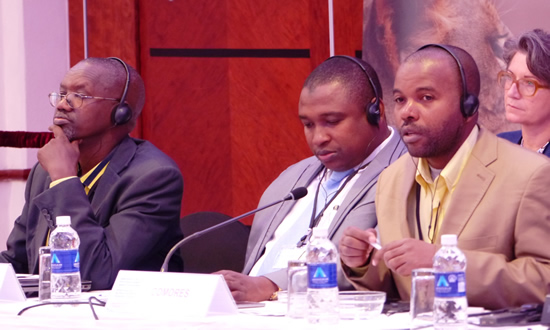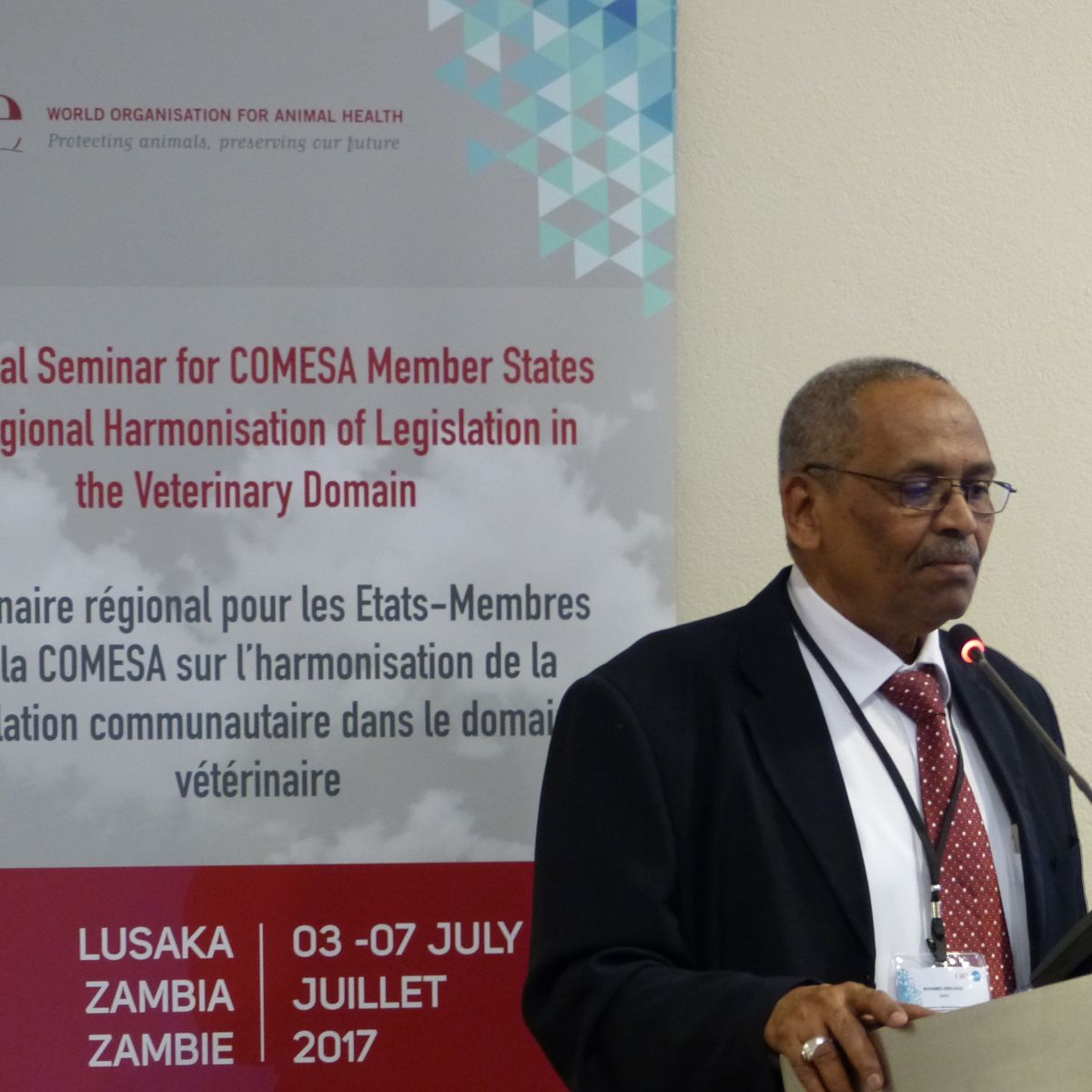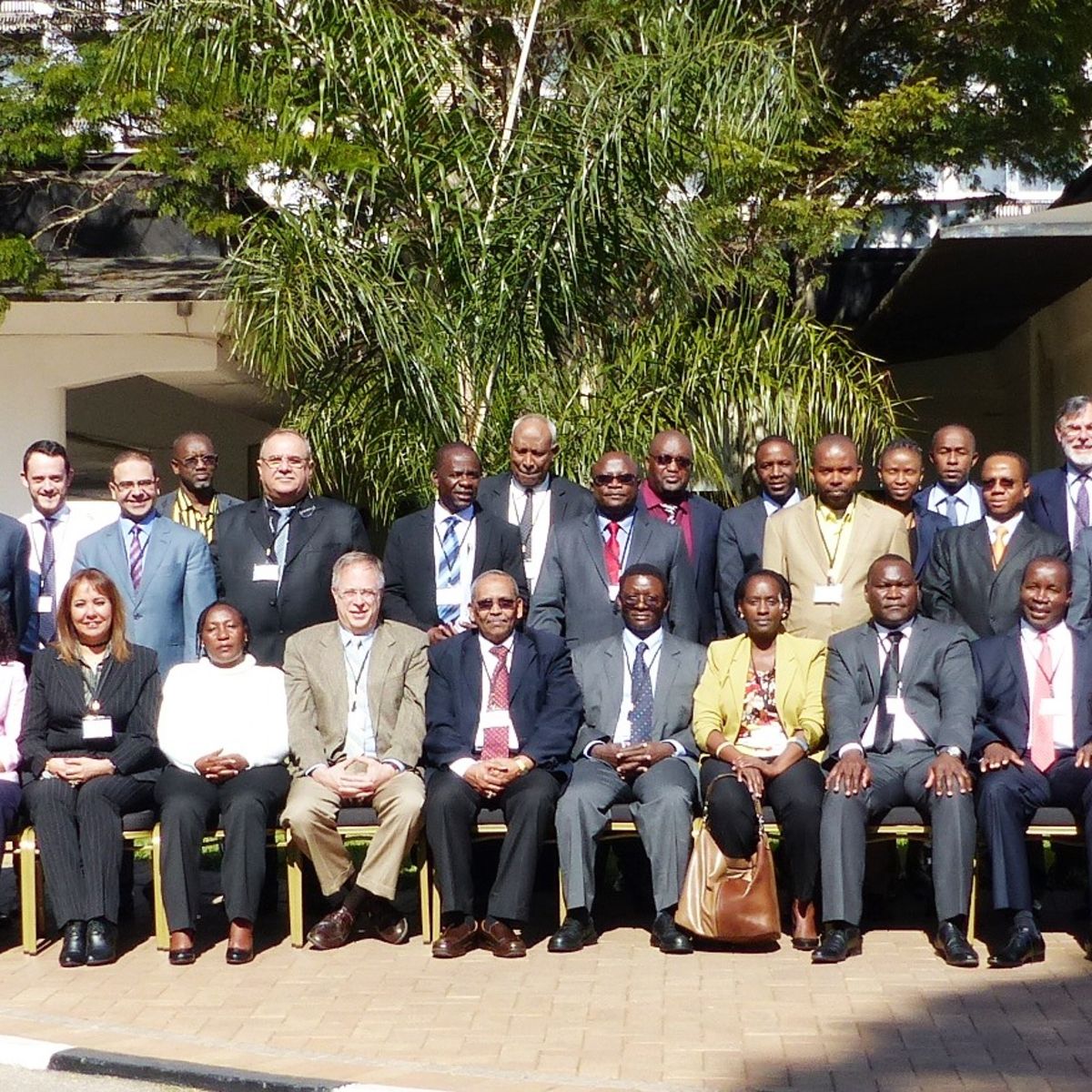
Justicia Legislation
From July 3rd to 7th, the capital of Zambia and host-city of the Common Market for Eastern and Southern Africa (COMESA), the city of Lusaka, welcomed some 60 government veterinarians and lawyers. As part of the series of training seminars on regional harmonisation of legislation in the veterinary domain, organised under the auspices of the Strengthening Veterinary Governance in Africa (VETGOV) Programme, funded by the European Union, these officials took a closer look at the issue of regulatory requirements for trade, certification and imports and exports of animals and animal products. The intensive 5-day training course was attended by 15 of the 19 COMESA Member Countries, namely Burundi, the Union of the Comoros, the Democratic Republic of Congo, Djibouti, Egypt, Kenya, Libya, Madagascar, Malawi, Seychelles, Sudan, Swaziland, Uganda, Zambia and Zimbabwe, each with a delegation of at least one legal expert and one or two veterinary experts.
The seminar was further attended by speakers and observers from the Food and Agriculture Organization of the United Nations (FAO), the Executive Secretariat of the Common Market for Eastern and Southern Africa (COMESA), the Inter-African Bureau of Animal Resources of the African Union (AU-IBAR) and a team of six OIE trainers, including the two key experts from the OIE Veterinary Legislation Support Programme (VLSP), David Sherman, OIE VLSP Coordinator and Martial Petitclerc, OIE / VLSP legal expert for the francophone countries.
The meeting was officially opened by the Delegate of Zambia to the OIE, the Director of Veterinary Services, Dr. Yona Sinkala. Earlier on speeches were delivered by Ms. Martha Byanyima, representing the Secretary-General of the Common Market for Eastern and Southern Africa (COMESA), HE Mr. Sindiso Ndema Ngwenya, Dr. Tabitha Kimani on behalf of the Food and Agriculture Organization of the United Nations (FAO), Dr Mohamed Abdel-Razig Aziz on behalf of the the Inter-African Bureau of Animal Resources of the African Union (AU-IBAR) and Dr Moetapele Letshwenyo on behalf of the OIE.
During the opening day of this 5-day seminar, presentations were made by the various partner organisations namely:
Representing the Director of AU-IBAR, Dr. Mohamed Abdel-Razig Aziz, Technical Advisor to the VETGOV Programme.
Through a series of working group sessions over the next few days, participants first carried out a critical evaluation of their respective national legislations in the field of regulation of import and export procedures, as well as veterinary certification, to identify gaps and weaknesses that appear in their legislation. Thereafter, participants identified the gaps that could best be dealt with through a regional harmonisation approach by COMESA and finally, they started work on the partial development of a regional framework.
Technical interventions that appear to be suitable for regional harmonisation within COMESA are, in decreasing order of priority:
A rapid and preliminary cost assessment, however, revealed that the cost of a harmonised livestock identification and traceability system would be prohibitive at this stage and deserves careful consideration before investing. On the other hand, the participants strongly insisted on the creation – before taking any other initiative – of an appropriate platform that would allow Member States to coordinate interventions in the field of animal health, sometimes referred to as a Regional Veterinary Committee.
This was the seventh and final in a series of training seminars on regional, community-wide harmonisation of veterinary legislation, jointly organized by AU-IBAR, OIE and FAO in partnership with the Regional Economic Communities since 2014. These seminars were all financed under the auspices of the VETGOV Programme with financial support from the European Union. Despite the closing of the VETGOV Programme at the end of July 2017, OIE, FAO and AU-IBAR intend to pursuit of this type of joint support in this technical area through a new initiative called Promoting Regional Integration through the harmonisation of Veterinary Legislation (Print-VetLeg).
All pictures © P. Bastiaensen (oie) 2017, unless mentioned otherwise




